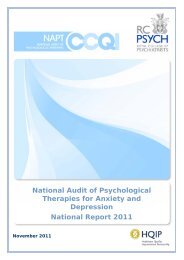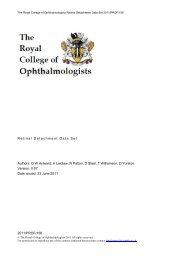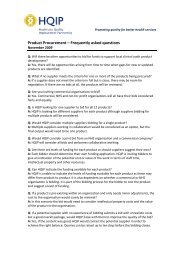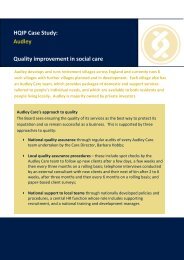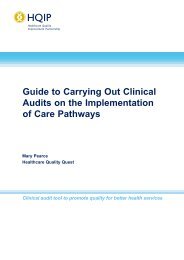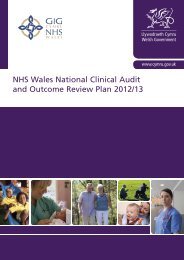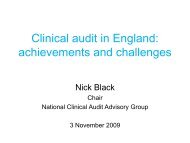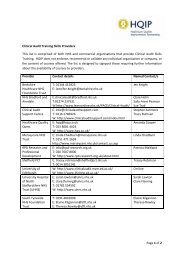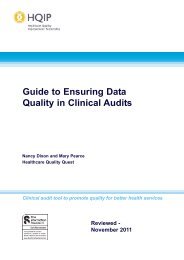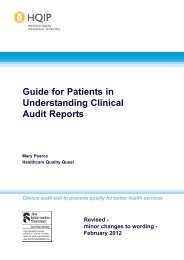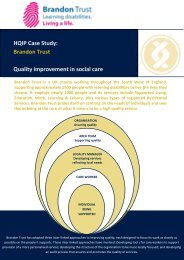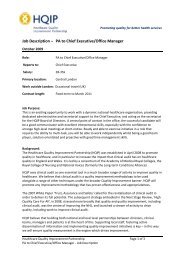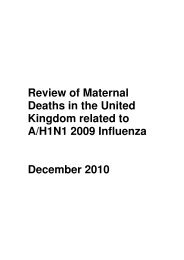Good Governance Handbook - HQIP
Good Governance Handbook - HQIP
Good Governance Handbook - HQIP
You also want an ePaper? Increase the reach of your titles
YUMPU automatically turns print PDFs into web optimized ePapers that Google loves.
7.2 Whole system: governance between organisations<br />
“Problems often occur at the borders between one organisation or team and<br />
another.” Learning from Investigations, Healthcare Commission, Feb 2008.<br />
“In the absence of formal governance arrangements, responsibility for supporting the<br />
governance of partnerships falls to partners’ own corporate governance<br />
mechanisms.” 44<br />
NHS Constitution Principle 5: 36<br />
“The NHS works across organisational boundaries and in partnership<br />
with other organisations in the interest of patients, local communities<br />
and the wider population. The NHS is an integrated system of<br />
organisations and services bound together by the principles and values<br />
now reflected in the Constitution. The NHS is committed to working<br />
jointly with local authorities and a wide range of other private, public<br />
and third sector organisations at national and local level to provide and<br />
deliver improvements in health and well-being.”<br />
Ten simple rules for governance between organisations:<br />
Continuity of Care<br />
1. Jointly commission outcomes and connectivity of care pathways from primary<br />
through acute, diagnostics, tertiary to community and home.<br />
2. Patient referral or data: Take the extra step – have they arrived: what has not<br />
arrived?<br />
3. Review and apply lessons from investigations elsewhere (NHS and other<br />
sectors). Could it happen here?<br />
Partnerships and networks<br />
4. Jointly audit critical processes across the boundary (clinical, financial,<br />
information etc) at appropriate depth & frequency respective to risk.<br />
5. Be consistent in telling patients/carers what they are entitled to and when<br />
they are holding responsibility for their own care.<br />
6. Check your partners/suppliers have the capacity to deliver their obligations.<br />
Mutual Aid and business continuity<br />
7. Engage with other organisations to support you in case of long term or<br />
widespread service collapse.<br />
8. Establish and test partner forums and networks to coordinate planning and<br />
review progress.<br />
Assurance<br />
9. Include reputational risks and potential failure of partners and suppliers in the<br />
Board Assurance Framework (BAF).<br />
10. Apply rules for new staff (CRB checks, data handling, competence,<br />
qualifications etc) to existing and agency staff.<br />
44 Audit Commission, Governing Partnerships, 2005<br />
www.good-governance.org.uk 34



